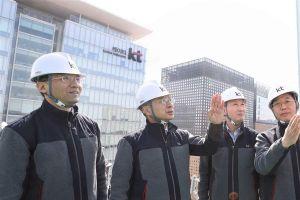Telecom Giant Says ‘Local Stablecoins, Blockchain’ Powered 19% Growth
South Korea is just one of the countries currently reeling from the effects of the coronavirus pandemic, with economic growth down in most sectors. But one industry – telecommunications – is booming. And blockchain-powered local stablecoins appear to be helping to spur that growth.

Per News Tomato, quarterly earnings for the big three South Korean telecoms networks (KT, SK and LG U+) are up by a staggering combined 24% on their quarterly figures from this time last year.
KT’s sales were up by almost 19% on Q2 of 2019, and the firm stated that stablecoin issuance was proving profitable.
The firm stated,
“As the demand for internet data centers (IDCs) and corporate cloud operations have increased, and the number of local currency issuances increased, our blockchain sales have grown.”
KT added that its industry 4.0-related sales (including blockchain) were among its most profitable business avenues in the past few months.
All three companies have launched their own mainnets and are in advanced stages of token-powered business development.
KT, though, has been the most active of the three when it comes to the issuance of local stablecoins – a blockchain-powered extension of paper-based local government-issued gift certificates aimed at stimulating citywide, countywide and metropolitan neighborhood economies.
As both Seoul and local governments look to do away with paper-based payment systems in favor of contact-free digital alternatives, KT and the like have found themselves in demand.
Last month, the quiet rural community of Buyeo County announced that its own stablecoin project, which cost USD 267,000 to launch in 2019, had already seen USD 48.5 million worth of tokens used in transactions.
___
Learn more:
Stablecoins Might Be Better Than Bitcoin For Payments, But Maybe Not For Long
Bitcoin Spenders’ Basket 2x the Size of Conventional One – Beliani CEO




